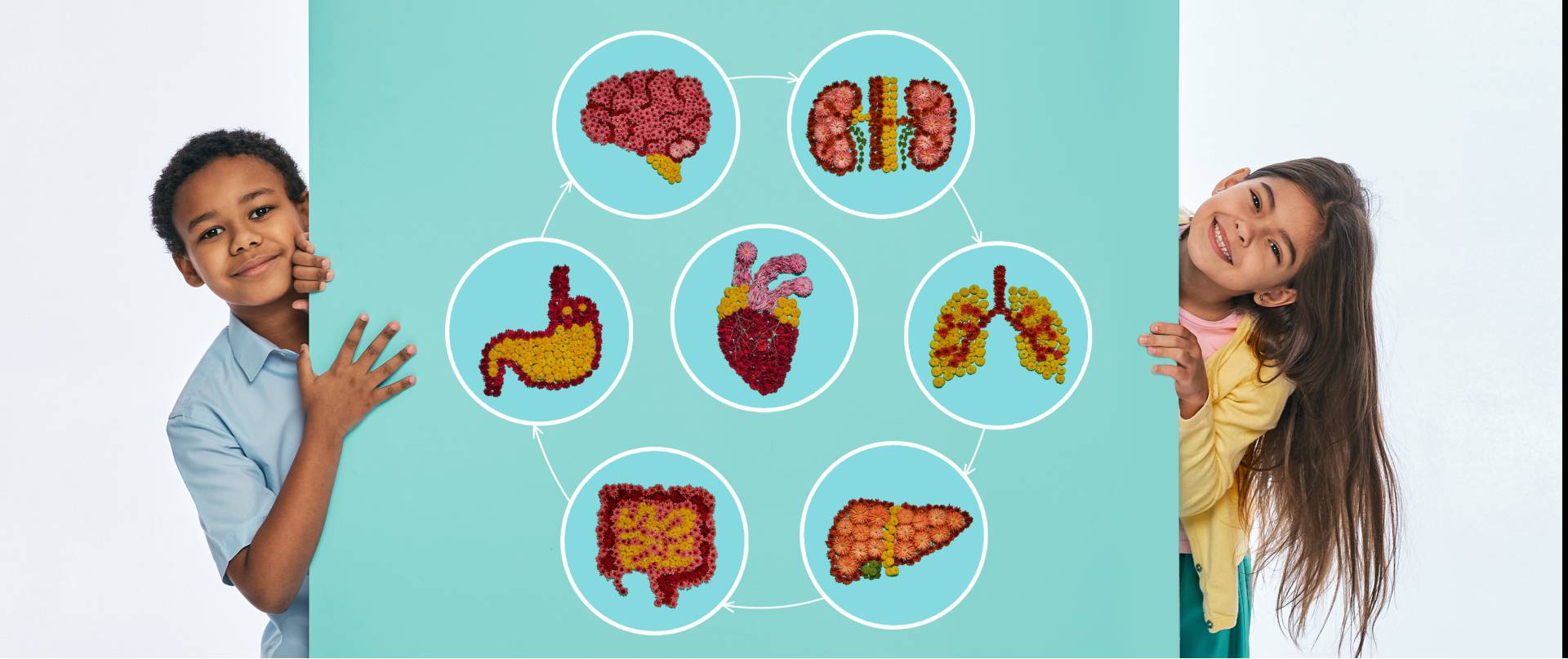These days, you hear a lot about gut health and how important it is. You may have read that having a healthy ‘gut microbiome’ (the microorganisms living in the digestive system) is really good for overall health and wellness. But have you ever thought about teaching your kids that gut care is so important when they are young? After all, their gut lays the foundation for being healthy overall as they grow up.
So, where do you start? Let’s look at some ways you can teach your little ones about the importance of gut care.
1. Make It Fun to Look At
Kids love anything with bright colors, fun pictures, and engaging visuals. You could make a storybook or comic with friendly characters that represent the different bacteria living in the gut. Using visuals like this not only gets kids interested in gut health test but helps them understand the role these tiny organisms play in their bodies.
2. Use Comparisons They Understand
Using analogies is a great way to explain complicated ideas to kids. For example, you could compare the gut to a garden where different plants (bacteria) are growing. Just like a garden needs care and nutrients to thrive, so does the gut. Explain that eating different fruits, veggies, and fiber-rich foods helps the ‘good’ gut bacteria grow, while sugary and processed foods can damage them.
3. Cook Together
Cooking meals together is fun bonding time, but also a perfect chance to teach kids about gut-friendly foods. Get them involved in preparing meals and discuss what ingredients you’re using. Point out how high-fiber foods like whole grains, fruits, and veggies act as food for the good gut bacteria.
Fun Fact: Research shows kids who help cook meals are more likely to try new healthy foods and develop good eating habits.
4. Let Them Try Fermented Foods
Foods like yogurt, kefir, and sauerkraut are full of probiotics, the beneficial bacteria that support a healthy gut. Make a point to regularly give your kids these probiotic-rich fermented foods and explain why they are so good for their gut. You could even involve them in making yogurt or sauerkraut at home as a fun learning activity.
5. Be a Good Example
Kids learn best by watching what their parents do. If you want your kids to develop healthy habits for their gut, you need to lead by example. Make thoughtful choices about your own diet and lifestyle choices, and explain your choices to your kids. Tell them why you choose to eat certain gut-friendly foods and avoid others that can be unhealthy for the gut.
6. Get Them Moving
Sitting around too much can actually negatively impact gut health. Encourage your kids to stay active through outdoor play, sports, dancing – any sort of physical activity that gets them moving.  This doesn’t just help overall fitness but can also help with digestion and keep things moving smoothly through their gut.
This doesn’t just help overall fitness but can also help with digestion and keep things moving smoothly through their gut.
7. Help Them Manage Stress Levels
Being stressed can really throw off the balance of good bacteria in the gut, leading to tummy troubles and other digestive issues. Teach your kids simple techniques like deep breathing, meditation, or kid-friendly yoga to help manage stress and anxiety. Learning this skill early will help them maintain a healthy gut-brain connection as they grow.
8. Read Books and Watch Shows
There are lots of kids’ books and TV shows that teach about the digestive system and gut health in a way kids can understand and enjoy. Use these types of books and shows as another way to incorporate lessons about gut care.
9. Visit A Farm
Actually seeing first-hand where fresh produce is grown can really make an impression on kids. Take your kids to a farm, orchard or community garden where they can pick their own fruits and veggies. Explain why eating these plant foods is so important for gut health, and let them make the connection between what’s on their plate and being healthy.
10. Celebrate Little Wins
Developing healthy gut habits is a process that takes time for kids. Be sure to celebrate along the way when they try a new gut-friendly food, stay active, or make any other steps towards caring for their gut. Positive reinforcement and recognizing their small efforts will keep them motivated.
Final Thoughts on Gut Care
Teaching kids about gut health is an investment in their long-term well-being. It allows you to shape their understanding of how the body works from an early age. More importantly, it instills healthy habits that can last a lifetime.
Remember, this process requires patience, persistence, and leading by example. There may be times when your kids are resistant, but don’t get discouraged. Keep making gut care a priority, and eventually, it will become second nature to them.
The key is to make learning about the gut enjoyable and relatable. Use age-appropriate language, engaging visuals, and hands-on activities to capture their interest. Most importantly, celebrate their progress, no matter how small, to keep them motivated.
With the right approach and consistent effort, you can raise a generation that truly understands and appreciates the importance of gut health. It’s a gift that will benefit them for years to come, enabling them to live healthier, happier lives.








